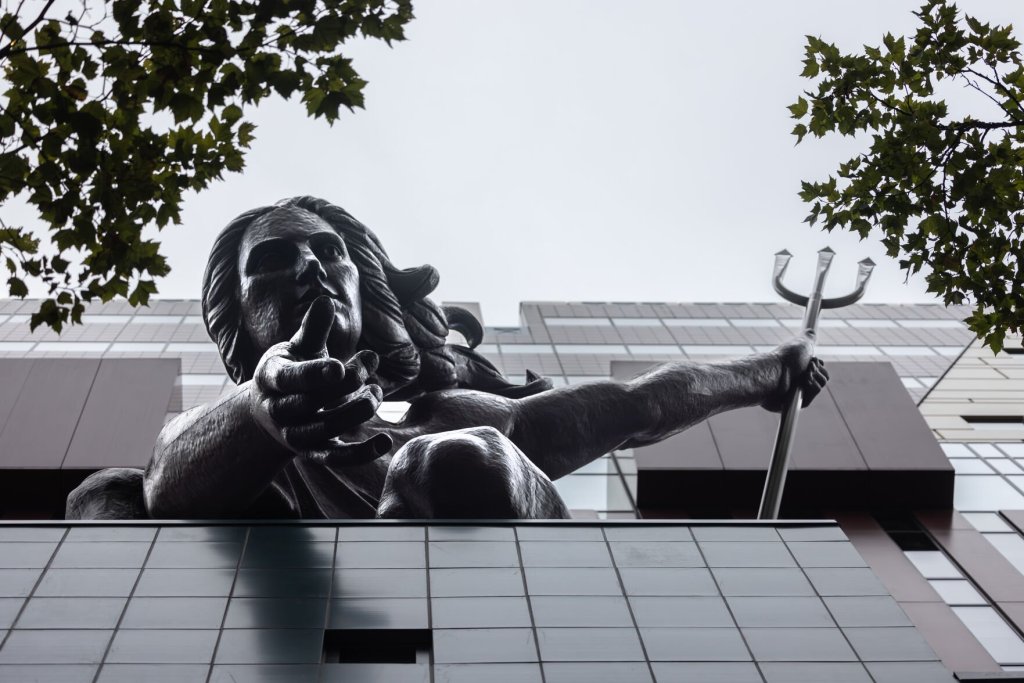Portland city elections: If you’re not confused, you haven’t been paying attention
Published 5:00 am Tuesday, October 15, 2024

- The Portlandia statue, a prominent figure in downtown, sits above the entrance of the Portland Building. Portland will now be known for another thing — ranked choice voting. How popular will it be?
For more than a century, Portlanders elected a mayor and city council that never much changed how they looked and acted. Oh, the policies shifted. The budgets were different.
Trending
But the election process, and the makeup of the City Council, remained the same.
This November, all of that changes. Radically.
There are two, distinctly different changes going on here. And they’re happening simultaneously.
Trending
How we elect our mayor and city councilors will be greatly different than in the past.
And how the City Council looks and functions will be greatly different than in the past.
The following is a primer to break down these changes.
Ranked choice voting
When your ballot arrives in the coming days, you won’t be asked to vote for just one candidate to be mayor, as you have in the past.
Instead, you’ll be asked to pick as many as six. And you’ll get to rank them from your favorite to least-favorite.
It’s called ranked choice voting, and although it’s new to Portland, it’s been used across the nation in states such as Alaska, Maine, Arizona and Missouri, as well as cities such as San Francisco and Cambridge, Mass.
The same mechanism will be used to elect the city auditor and for the newly reimagined Portland City Council, although that election will be slightly more complicated.
By 2026, voters also will select all Multnomah County positions, such as sheriff and county commission, using ranked choice voting.
A ballot measure before voters this fall, could expand the system statewide, if voters approve it.
If a Portlander also is being asked to vote for a schools race, or a special district, or state and national candidates, they’ll receive a traditional ballot in the mail that will look just like the one they received in the past. But their envelope also will include a second sort of ballot for the city races. Plus, instructions on how to use the new form.
“There will be a full explanation in your ballot,” said James Eccles of the city of Portland, who is helping oversee the adoption of ranked choice voting.
Your envelop also will contain instructions on how to vote.
How it works
In ranked choice voting, voters are asked to rank their favorite candidates from their No. 1 pick to their No. 6 pick.
The race for mayor and auditor are single-winner races, but the Portland City Council races will be a multiple-winner election, and more on that below.
To illustrate the process, let’s pretend that 10 candidates are running to be mayor of Portland. For this mock-election, we’ll be using fake names.
You vote for Candidate Able as your No. 1 pick, and Candidate Baker for No. 2. Your neighbor also likes Able, but Candidate Charlie gets her No. 2 pick.
At 8 p.m. Tuesday, Nov. 5, votes will be counted. If one candidate crosses the 50%-plus-one-vote threshold, it’s game over. We have a winner.
But say nobody does.
Whoever got the least amount of votes gets eliminated, and votes for that candidate are redistributed. Let’s say it was Candidate Able, your favorite.
Your No. 2 vote, Candidate Baker, is your next-highest ranked candidate. She’ll receive your vote, as you indicated you liked her better than the other remaining candidates.
As for your neighbor, who also voted for Candidate Able, Candidate Charlie now gets your neighbor’s vote.
In the second round, if nobody crosses the threshold, the next lowest vote-getter is eliminated, and anyone who voted for that person sees their votes switch to their No. 2 (or No. 3 or No. 4, if their No. 2 also was eliminated).
Still no winner?
The lowest vote-getter is eliminated and votes redistributed. And again and again, until someone crosses the 50%-plus-one-vote threshold, and we declare the new mayor of Portland.
New-look city council
It’s going to be slightly more complicated for the City Council race, which is a multiple-winner election.
That’s because Portland voters in 2022 also adopted a new form of governance.
For the past century or so, Portland has used a commission-style form of government: Everyone in the city voted for mayor and four city commissioners. The mayor and councilors served on the City Council, but they also oversaw specific city bureaus. For instance, the mayor almost always oversaw the Portland Police Bureau, while a commissioner might have taken on the water, parks or fire bureaus.
Under the new governance, everyone still votes for mayor. But the city now has been broken up into four districts. And each district will elect three city councilors to represent them, for a total of 12 on the council.
Councilors no longer will oversee bureaus. That work falls to new positions: a city manager and several assistant city managers.
So for the City Council races, the threshold to win is 25%-plus-one-vote. And if no one hits that threshold outright, the results will be just like in the mayoral race: The lowest vote-getter is eliminated and votes redistributed, until three candidates (in each of the four districts) cross the threshold.
(As for why that specific threshold was selected: It’s the math. The first person to cross the threshold will have 25% of the vote plus one more, at the very least. When a second candidate crosses the line, now 50% of the votes have been accounted for, plus two more at the very least. When the third candidate crosses the line, 75% of the votes will be accounted for, plus three more at the very least. Meaning, mathematically, nobody else could do better than 24% plus some.
When will we know who won?
That’s unknown.
Election night is Tuesday, Nov. 5. And Multnomah County elections officials say the first spate of votes will be released at around 8 p.m.
Traditionally, 50% to 60% of ballots are in by that time, said Tim Scott, Multnomah County elections director. In the past, the county has received and counted an estimated 93% of ballots within two days following election day. This year it could take a bit longer, because it’s a more complicated process.
So when will the county declare a winner?
“We won’t,” Scott said. “Each round will show someone in the lead. Because each round is a snapshot.”
If it’s a tight race, it could take several days to play out. In theory, Portlanders might not know who won until that first weekend after election day, or into the following week. (Although, in the event of a very tight race, that also was true in the traditional, first-past-the-post elections we’ve used for decades.)
When candidates pass the thresholds, and everyone else is mathematically eliminated, the winners of the race will be obvious. But it’s not the county’s job to declare winners and losers, Scott said.
The county just has 27 days — until Dec. 2 — to certify the results of the election. It will be up to the city of Portland to announce the winners in the city elections.






